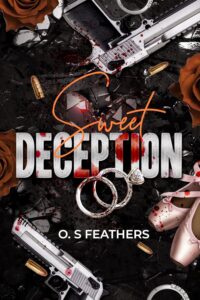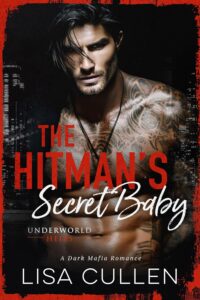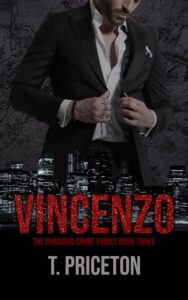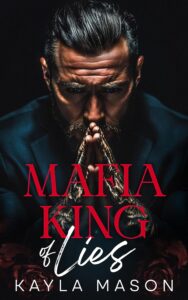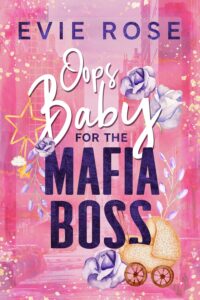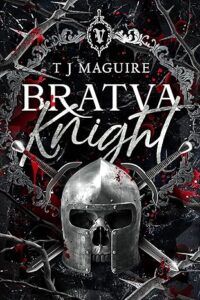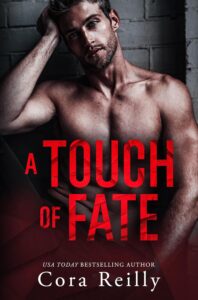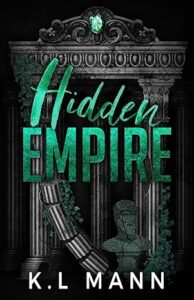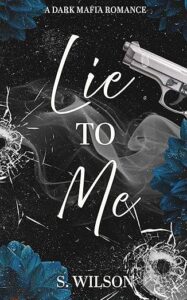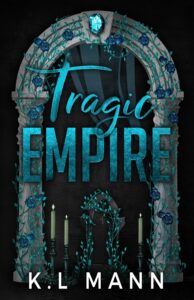The Tuscan hills rolled in endless gold-and-green waves into the horizon, where the setting sun glowed as orange as an egg yolk, split and spilling tangerine light into the bowls of the valley. There were the sharp tang of cypress and musk of hay on the sticky breeze wafting through the open window of the little Fiat I’d rented for my trip and the sound of some random Italian pop song playing through the radio. My belly was full of the cacio e pepe pasta I’d devoured in a small corner restaurant in Rome I’d had bookmarked in my browser for years before I’d departed for the apartment I was renting in Florence, but I had a few fresh plums in the cup holders in case I needed a snack.
It was the first day of my long-anticipated, desperately needed trip to Italy.
And it was paradise.
I didn’t take a moment for granted, because this trip had been a lifetime in the making.
I thought every child grew up idolizing something. A film star, a book series, an older sibling’s best friend. It wasn’t that strange to obsess over the idea of something until it became a part of you, a dream stitched into your soul, a fantasy carved into your psyche.
Mine was the vision of Italy.
My father had emigrated before I was born from some small town in the Tuscan hills. He didn’t speak about his history or ancestry much at all, no tall tales or shared customs. It was as if he’d stripped himself of all cultural identity the minute he stepped foot on American soil. I often wondered if it was because he had a traumatic past there he didn’t want to share or notions about his native land he didn’t want to pass on to his children.
Maybe it said strange things about how much I admired and adored him that I wanted to get to the heart of his magic, and my childish mind had latched on to Italy as its source. Maybe it was because I’d spent so much time in the hospital staring at the same walls for hours on hours, wishing for escape. Imagining a fantasy world with goblins and unicorns had seemed too intangible for comfort, but a real country across the world, filled with history and cultural richness, was the perfect vehicle for escapism.
For whatever reason, I started my Italian-trip fund when I was seven years old. At first, it was selling lemonade at our plastic kids’ table on the side of the road at our lake house, but it morphed into making babysitting money and busking during the summers, then working at the local movie theater when I was a teen. I also interned for my dad’s wealth management firm during my summer breaks between college semesters at the University of Michigan, but it didn’t pay much, and I supplemented with evenings working at Mancini’s restaurant. I didn’t have time for boyfriends or parties when I was on a mission to spend the entire summer after college graduation in the land of my dreams.
My parents didn’t know I was going to Italy because I wouldn’t have put it past them to lock me in the basement for the duration of the summer. The way John Stone hated his home country was almost biblical. The only things he let slip over the years were a handful of expressions he’d mutter that couldn’t be properly translated and the general area his family had originated in. When I expressed interest in anything to do with Italy, he shut me down and told me that we were American and that I should be satisfied with calling such a great country my own.
And I was, but whether or not it was because I was a child, his hatred and refusal to indulge my curiosity only stoked the flames of my intrigue even higher. I was desperate to visit his homeland and determined to discover if we had any remaining family there, despite having very little information to begin my search with when I arrived. In the way of most parental disapproval, my father’s aversion to Italy only made me lust after it more.
So when I declared I was going away for an entire summer as a graduation present to myself, I told them I was backpacking through Europe. England, France, Spain, the Balkans. Anywhere but Italy.
My father had gone so far as to make me promise on his ancient leather-bound family Bible. It was stamped on the inside of the cover with a lion holding a shield embossed with a fleur-de-lis. The symbol of Florence and the principal reason I’d decided to spend my summer in that particular Tuscan city. I’d hidden my wince, crossed my fingers, and thanked my lucky stars I was an atheist.
My parents had made it clear to me all along that they wouldn’t financially support my trip, and even though they could well afford it, I didn’t argue. They were happy for Gemma to go on a trip to Denmark with her friends after high school and to Aspen for ski trips every year, and the summer she’d passed away, she had been doing a year abroad in Albania.
They didn’t treat me the same way they treated Gemma, because I’d been born with a serious health defect that meant I’d spent most of my childhood in and out of the hospital. They cared about us both, but they never got over their fear for my safety. They didn’t want me gallivanting around the world or going out with boys. They wanted me wrapped up at home on a path they set out for me so they could have some sense of control in a situation where they’d felt hopeless one too many times.
I got it, I did.
But it didn’t stop me from making my own plans.
By the time I walked across the stage at Michigan to get my diploma from the Ross School of Business, I had $10,000 saved for my trip.
Ten thousand.
Which was nothing to sniff at, especially considering I also had a normal savings account to set myself up for my future.
Because Italy wasn’t my future.
It was a beautiful blip in time where I could explore the country of my dreams and my true self at the same time.
My future had been set for me a long time ago by my father.
And it was only solidified when we lost Gemma last year. Only twenty-six, healthy and beautiful, and suddenly gone thanks to a spontaneous coronary artery dissection.
I would spend the summer in Italy on my own dime and return to start working for my father so eventually I could take over his wealth management firm.
Thrilling stuff.
But that was for future Guinevere to worry about.
Now I was literally living my dream.
I sang along to the song on the radio in my passable Italian and tapped my hands on the hot steering wheel as I enjoyed the open road leading me through the scenic route to Florence.
As if offended by my lack of singing talents, the car let out a sudden, ferocious growl followed by an ominous bang. Black smoke belched out of the hood and curled through my open window.
“Dammit,” I cursed, pulling over to the side of the road as the engine sputtered and made a series of tumbling noises.
The music cut off as soon as I turned off the car, leaving only a quietness that existed in every countryside the world over: crickets, birdsong, and the shush of the breeze through long grass. No sounds of cars.
And no sight of them either.
I could see most of the road in either direction, losing sight in sections as the hills dipped and swelled.
But there was nothing.
I was alone in the Tuscan countryside, where I knew absolutely no one, and with only a textbook understanding of the Italian language.
“Why?” I whispered, closing my eyes to beat back the sorrow that seemed to shadow every waking moment of my life since Gemma died. “Why?”
The first day of my dream trip had already devolved into a nightmare.
I sucked in a deep breath to brace myself, then coughed as the noxious fumes from the car scorched down my throat.
There was nothing for it, though.
I couldn’t just wallow there as the sun set and night threatened. Even though Italy was fairly safe for tourists, camping out on the side of the road was not safe for anyone, let alone a twenty-three-year-old foreigner.
So I rubbed the tears lurking in my ducts with a fist and then marched to the trunk for the tool kit the rental representative had assured me was inside. I wasn’t sure if there was anything my meager knowledge of cars could do with a smoking Fiat, but my only recourse was to try.
Twenty minutes later, I threw the oil-coated rag to the asphalt and dropped to the gravel with my sweaty forehead in my hands. My skin was tight across my face, a sure sign I was getting a burn from the hot sun even though it was dipping low over the horizon and casting long, slightly sinister shadows now. I’d checked the coolant system, as my trusty internet search had suggested, and the oil, but it was hard to tell which might be the problem. The car wasn’t smoking anymore, but I wasn’t confident I should drive any longer.
Still, if someone didn’t come along soon, it was either drive a hazardous car or sleep in it in the middle of the countryside, a plum prize for any human traffickers that might be lurking in the night.
I told myself to stop being so paranoid, but it was my father’s voice in my head, and it was hard to quell.
Italy isn’t safe, he always said whenever I spoke of my trip. Go to England or France, Spain even, if you want some heat. Italy isn’t a good place for a young woman. Promise me you won’t set foot on that godforsaken land.
I winced as I thought about him seeing me then, half smeared in grease, with a burn on my forearm from the overheated engine.
My phone battery was at 18 percent, and I cursed myself for not charging it on the plane ride over. I looked up my location on the map and nearly threw the phone into the golden grass field in frustration when the page wouldn’t load.
“Okay,” I said slowly, leaning my head back against the warm car to stare at the cerulean blue sky, its beauty mocking me. “Don’t freak out.”
I was beginning to freak out.
Of course I’d just had to take the road through Val d’Orcia instead of the highway straight through to Florence. Of course I’d just had to rent the little red Fiat because it was so cute and totally matched my lifelong vision of driving through Italy.
Of course this would happen to me.
I tried to manifest, to stay positive, but I’d always been unlucky.
My parents and Gemma even called me Jinx because if something could go wrong for me, it usually did.
Gemma said I must have been very, very bad in a past life.
So I tried to be good in this one. I volunteered at the suicide helpline, went to church, bought groceries for my elderly neighbor in Ann Arbor, always left change for the homeless, and tried to say only kind things when I said anything at all.
It didn’t make a single bit of difference.
And honestly, sometimes, watching Gemma live her happy-go-lucky, responsibility-free life, I’d often wondered if it was worth it.
Being the good girl.
It was one of the reasons I was even in Italy. My parents had practically begged me not to go on my trip, still too rattled by Gemma’s passing to deal with having me so far from them, especially when I had health concerns of my own.
But I felt it was a fitting tribute to Gemma to finally do something I wanted for a change. She had encouraged me for years, but particularly those months she’d been living abroad, to branch out from under my parents’ shelter and discover the world for myself.
I knew with bone-deep certainty she would approve of my duplicitous holiday.
Distantly, a humming vibration sounded.
I perked up against the side of the car, cocking my head to strain my ears.
Yes, a car.
I shot to my feet, slipping slightly in the gravel, and then ran around the car to the roadside. A nondescript blue sedan was descending the hill before this one.
Without really thinking through the ramifications, I threw myself into the middle of the road, jumping up and down, waving my arms, and crying out.
When the car crested the hill, it slowed instantly, the driver probably unused to seeing a crazy American in the middle of a country road.
“Ciao,” I called, dropping my arms as it crept to a standstill just in front of me. “Parli inglese?”
Do you speak English? I asked.
My Italian was passable, but not when I was in panic mode.
I moved closer to the open window and noted that the driver was a middle-aged gentleman with weathered tan skin in workingman’s clothes. We were surrounded by vineyards, so I had to wonder if he was one of the men who worked them.
“My car broke down,” I explained, waving an unnecessary hand at the cute and inoperable Fiat.
He blinked at me, almost like he couldn’t be sure I existed. “Broken?”
“Yes,” I exclaimed a little too enthusiastically. “Yes, broken.”
“I can look,” he offered, a slow grin taking over his swarthy features.
I beamed back at him. “That would be great, honestly. I know next to nothing about cars.”
He nodded, indicating for me to move so that he could pull off the road behind my car. I went to wait near the Fiat, fiddling with my phone because I’d been taught to text my dad if I was ever in trouble, but he was all the way back in Michigan, and texting him would just make him worry.
I startled a little bit when the gentleman got out of his car. He was a big man, broad through the shoulders and at least six feet. Given I was five foot three on a good day, my heart started to race.
“What’s your name?” I asked him, trying to establish a connection because I’d read once somewhere that people were less likely to harm you if you shared details about your life with them.
He grunted as he grabbed a tool kit out of the back of his trunk. “Galasso.”
I’d never heard the name before, and it made me think he was making it up, but I told myself to chill out. It was still light out, though the sun was only a sliver of molten orange on the horizon behind the vineyards and the sky was sprayed with pink-and-purple clouds. I remembered the number for emergency services in Italy and typed it into my phone even though I didn’t have great service, ready to press the call button if the need arose.
“Thank you for this,” I said as he walked over to the Fiat and started his inspection under the hood. “I’m in Italy with my entire family just twenty minutes from here, but of course I had to wander off on my own. They’ll be so worried about me if I don’t get home soon.”
Galasso’s mouth twitched, the first sign of true humanity in him. “I have daughter a little younger than you,” he admitted in thickly accented English.
Instantly, I felt relief sluice through me like cool water on this hot summer’s night.
He had a daughter.
Good, not a predator, then, but a helpful father who envisioned me as his own daughter stranded on the side of the road.
More at ease, I grinned at him and ducked into the car to grab two plums, then offered one to him.
He shook his head and indicated the engine with a jerk of his chin.
Right.
Well, I leaned against the side of the car and took a bite of the succulent plum.
“I have more in the car if you change your mind. The produce here is so divine,” I praised, wiping juice from my chin with the back of my hand. “Do you work in the vineyards nearby?”
“For a man who owns vineyards, si.”
Okay, so not a talker. Not a problem.
I could be chatty with just about anyone. My father called it “the curse of the Midwest” when he was teasing my mom about making friends with everyone everywhere we went. I didn’t think Galasso would be friendly given his gruff nature, but he listened to me babble as he worked on the car. The sun had gone completely, the sky an electric shade of blue before true dark descended, when he finally closed the hood and wiped his hands on his dirty jeans.
“Bene,” he told me. “Is finished.”
“Bravo,” I exclaimed, clapping my hands together. “Grazie mille, Signore.”
“Prego.”
When he extended his hand, I frowned at him and then remembered I’d offered him a plum if he changed his mind.
“Of course.” I opened the driver’s door and bent inside to grab the last stone fruit sitting in the console.
As I did, a firm hand landed on my hip.
The touch hit me like a thousand watts through a cattle prod. I jumped, banging my head on the roof of the car. Before I could jostle away, his other hand landed on my opposite hip and gripped tight. A moment later, he was pressed hard against my bottom, his erection obvious through the layers of cloth between us.
Panic pulled the plug on all rational thought, and the only thing left in my mind was no no no.
I lurched away from him, scrambling farther into the car because I knew I’d have no chance of getting past his bulk behind me. He wasn’t expecting that. I’d made it to the passenger seat, the door handle in my hand, when a big hand caught my ankle and tugged.
“No!” I screamed, kicking back with all my strength to dislodge him.
His nails carved into my skin like fire, but he was forced to let go with a curse when I knocked him partially out of the car.
Static buzzed in my ears, spots dancing in my vision because I didn’t realize I was holding my breath as I threw my whole body at the passenger door and spilled out the other side of the car. My shoulder and knees hit the gravel hard, stones embedding in my skin, but the pain only cut through my fear like a hot blade.
I needed to run.
My cute sandals lost purchase on the gravel as I tried to push myself into a run from my sprawl, but I quickly gained my feet and booked it into the tall yellow grass beside the road. Through the hard bass of my heart thumping against my rib cage and the billow of breath through my nose, I could hear him behind me, giving chase.
I picked up the skirt of my long dress in one hand and used the other out in front of me to push the grasses from my face as I sprinted through the wheat without a clue of where I was heading.
I just knew if I didn’t get away, I’d end up like those newsclips you saw on TV where a traveler in a foreign land took a wrong turn and ended up dead too young.
I’d never been more grateful for my love of long-distance running.
Even with the oppressive heat, it only took ten minutes for the sound of him crashing behind me to diminish into nothing. After fifteen, I risked looking over my shoulder to see his murky outline in the dark grasses behind me at a standstill, hands on his hips.
I kept running.
All my things were back in that unlocked Fiat.
My passport, my luggage, my wallet.
Only my phone was with me. Thank God for dresses with pockets.
But what did material things matter in the face of being raped, beaten, killed, or taken?
The sky was darkening rapidly now, the hand in front of my face a dark-gray smear in the inky press of grass all around me. I tried not to think about the snakes and mice and other critters that might be living in the wheat fields and pressed on, hoping to find a house or a town at the other end of this.
I didn’t expect to tumble out of the field straight into another road, one with a car careening too fast down the asphalt straight at me. The headlights blinded me, leaving me frozen in the middle of the road as the car barreled toward me.
Oh my God, I thought with sudden clarity, I’m going to die, and my parents will have lost both their children in one year.
I closed my eyes and wished fervently that my parents would be okay.
There was a sudden shriek of tires against the road and the acrid scent of burning rubber. I braced for impact, and a moment later, something clipped my hip hard.
Hard, but not brutally.
Hard enough to throw me to the ground, but not enough to kill.
I knew, because I lay there on the road, staring up at the stars blinking into existence in the black bowl of night as pain ricocheted through my left side and the back of my skull and my breath streamed through my nose, that I’d never felt more alive.
A car door slammed, and shoes pounded over the pavement seconds before a body loomed over me.
“Vaffanculo, sei uno stronzo!” he shouted down at me.
Hysteria bubbled in my belly and emerged from my mouth as a high, panic-edged giggle. Once I started, I found it impossible to stop. The combination of relief and adrenaline was simply intoxicating.
There was a mumbled male curse, and then someone was crouching beside me, a large hand tapping lightly at my cheek.
“First,” I gasped through my laughter, “you hit me with your car and then with your hand. I really am the unluckiest girl in the world. Out of the frying pan . . .”
“And into the fire,” he finished in a rough, Italian-accented voice. “You are American. This explains the idiocy.”
I winced as I tried to sit up, pain sinking sharp teeth into my side. “Well, I’ve been in Italy for less than twenty-four hours, and one person has already tried to rape me and another has hit me with his car. What does that say about Italians?”
He seemed a little shocked by my audacity but recovered quickly. His face was all in shadow, backlit by the headlights, but he was a large man, and I was suddenly acutely aware of the position I was in, sprawled across the ground.
When he reached for me, I flinched, dragging myself back across the pavement. My dress tore with an audible rip, but it was the least of my concerns.
“I mean you no harm,” he assured me, as if the idea was preposterous. “Beyond having hit you with my car, obviously. Let me help you to your feet.”
I ignored his hand and awkwardly pushed myself to my feet, swaying a little when I stood up. My head pounded ruthlessly, and my vision grayed out around the edges. A hand on my elbow steadied me as I took a deep breath and closed my eyes to let the dizziness pass.
“Tranquillo,” he murmured, and even though his voice was still rough, there was a softness to it I knew was meant to soothe me. “Take a moment, idiota. You have just been hit by a car.”
“Your car,” I reminded him, snapping my eyes open to fix him with a glare.
In the murky light, I could just make out the shape of his small smile.
“Si, my car. I have damaged you, and you have damaged her. I am inclined to believe a Ferrari is worth more than an American tourist, but I am feeling gracious tonight, so why do we not call it even?”
I snorted before I could stop myself, my ribs aching a little at the effort. My hand pressed to my side, and I winced.
“You most likely have a concussion,” he mused blandly. “Maybe bruised ribs and a painful contusion on your hip.”
“Are you a doctor or something?”
There was a light pause that felt almost like I’d pressed on a bruise beneath his skin. “No,” he said finally. “I am more prone to hurt than heal, which is why helping you is so oddly out of character.”
I rolled my eyes, slapping at his hand to release my elbow so I could retrieve the shoe that had been knocked off when I was hit. “You have an even odder definition of helping someone if you think running them down counts.”
He let me go, but only so he could bend down to pick up my broken sandal.
“You mentioned someone tried to . . . hurt you,” he said, so darkly a little shiver dragged nails down my spine. “Where did this happen?”
“Across the field.” I gestured vaguely to the black abyss beside us. “I left my car, my luggage, my passport . . . everything.”
“Nothing is worth the price of your life or sanity,” he declared, as if I shouldn’t worry about all my material possessions and my means of leaving the country being lost to me. “You say you are unlucky, but from where I stand, you should count your lucky stars.”
“And how is that?” I asked, limping toward the side of the car just so he would be forced to face the light. After the events of the evening, I wasn’t comfortable with a faceless stranger.
He didn’t turn to me at first, his head dipped to look at the snapped strap of my sandal in his big hands. When he finally turned to face me, the light slapped across his features almost violently, sending them into stark relief.
I gasped and took a step away from him.
“Because,” the beautiful man before me practically purred. “Tonight, I feel like playing the hero instead of the villain.”

